I see a man cannot be a faithful minister, until he preaches Christ for Christ’s sake – until he gives up striving to attract people to himself, and seeks only to attract them to Christ. Lord, give me this! – M’Cheyne
Monthly Archives: July 2014
Power in Sermon Prep
Every preacher surely knows the feeling. Sunday’s coming and he’s yet to settle on a text or outline for his sermon. He fears he will enter the pulpit void of power.
What’s he to do?
Clearly, he must pray for the fresh winds of the Spirit to inflame his soul and give him full insight into God’s word. But is there anything else that one can do? Any dispositions of the heart necessary for power in preparation?
LET THE POWERFUL PREACHER ADVISE
Spurgeon was, by all accounts, a legendary force of power in the pulpit. You don’t get the label “Prince of Preachers” if you aren’t a Christ-exalting, homiletical hurricane. And he trained his pastoral students to yearn for the power of God in preaching. In an address to the annual pastor’s conference over which he presided, Spurgeon remarked on “The Preacher’s Power, and the Conditions for Obtaining It.”
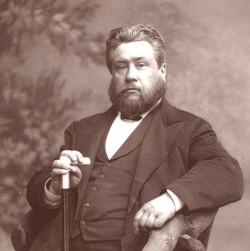 Spurgeon starts by reminding his audience that Sovereign God of the universe purposes to use weak vessels (preachers) to proclaim His treasured Christ. Therefore, these men must preach “by Divine power, or else be total failures.” From where does such power come? “The supernatural force is the power of the Holy Ghost, the power of Jehovah Himself. It is a wonderful thing that God should condescend to work His marvels of grace through men.” Amen!
Spurgeon starts by reminding his audience that Sovereign God of the universe purposes to use weak vessels (preachers) to proclaim His treasured Christ. Therefore, these men must preach “by Divine power, or else be total failures.” From where does such power come? “The supernatural force is the power of the Holy Ghost, the power of Jehovah Himself. It is a wonderful thing that God should condescend to work His marvels of grace through men.” Amen!
The Prince calls preachers to long for such power in public, but to remember that “in order to have power in public, we must receive power in private.” It’s in this part of the address that Spurgeon speaks about receiving power in sermon preparation. He says it’s during sermon preparation “the Lord gives the soul saving message, and clothes it with power; He gives it to certain order of people, and under certain conditions.”
So, what are those conditions for receiving the Spirit’s power during sermon prep?
6 CONDITIONS FOR OBTAINING POWER IN SERMON PREP
- A simplicity of heart. The Lord pours most into those who are most empty of self. Those who have least of their own shall have the most of God’s. The Lord cares little what the vessel is, whether golden or earthen, so long as it is clean, and disengaged from other uses.
- A great humility of mind. It ought not to take much humility for such poor creatures as we are to sit at the feet of Jesus. We ought to look upon it as an elevation of mind for our spirit to lie prostrate before infinite wisdom. Assuredly, this is needful to the reception of power from God.
- A singleness of eye. Such a man, trying to hear what God the Lord shall speak, is all ear. He honestly and eagerly desires to know what God’s mind is, and he applies all his faculties to the reception of the Divine communication. Unless you have but one eye, and that one eye sees Christ and His glory in the salvation of men, God will not use you.
- A complete subordination to Him. The best of men, must be altogether subordinate to the Word of the Lord.
- A deep seriousness of heart. We are so weak, and these Divine inspirations are so weighty, that we are subdued into awe, and there is no room for levity. Brethren, avoid anything like trifling over sermon-making. Do not regard preparation for the pulpit as a trifling thing; and do not rush upon your holy duties without devout preparation for the hallowed service. Make your waiting upon God a necessity of your calling, and at the same time the highest privilege of it. Count it your joy and honour to have an interview with your Master. Get your message fresh from God.
- A sympathy with God. The Lord loves to use a man who is in perfect sympathy with Him. God loves to clasp a sympathizing one to His heart, and then to say, “Go, My child, and work in My Name; for I can trust My gospel in thy hands.” Be with God, and God will be with you. Espouse His cause, and He will espouse yours. There can be no question about this.
This is a well of wisdom from which you can drink as you continue to prepare for this weekend. May you receive power in your preparation!
Read ‘Em All
 I try to let most of my reading focus on works from the pens of men who’ve long lay in the ashes.
I try to let most of my reading focus on works from the pens of men who’ve long lay in the ashes.
But every so often a contemporary author comes along and has a kind of winsome wisdom that demands attention. One man who falls squarely into that category is Jonathan Leeman.
Do you know him?
Leeman currently serves as the editorial director for 9Marks and is a lay elder at Capitol Hill Baptist Church. He wields his authorial pen with witty profundity and accessibility. That latter trait is most important seeing that Leeman rarely leaves – at least in his publications – the theological space of “church polity.”
Have you ever read a work on church polity? If you actually did, that odds are that two things were true: 1) it was old, and 2) it tested your ability to stay interested. And that’s why you must read good Dr. Leeman; he is a modern author who is abundantly useful and insightful. I don’t think it’s any stretch to say that Leeman – in conjunction with his comrades at 9Marks – might just make polity popular again.
Here are four books from Leeman, with the publisher’s description, that every pastor should consider. And I’d read ’em in the following order.
LEARNING FROM LEEMAN
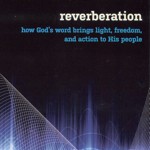 Reverberation: How God’s Word Brings Light, Freedom, and Action to His People. What is the most effective way to grow a church? It’s not a new methodology or cultural outreach strategy, it’s…the Word of God. In this book, Jonathan Leeman wants you to realize that the Word, working through God’s Spirit, is responsible for the growth of God’s church and we need to trust it! Leeman not only informs and equips the leadership of local churches for greatest effectiveness in their preaching ministry but explains how to translate that into the life of the church throughout the week. The book also deals with two errors – not trusting the Word (resulting in a pragmatic ministry philosophy) and not living in light of the Word, (resulting in a ministry philosophy of “preaching is enough”).
Reverberation: How God’s Word Brings Light, Freedom, and Action to His People. What is the most effective way to grow a church? It’s not a new methodology or cultural outreach strategy, it’s…the Word of God. In this book, Jonathan Leeman wants you to realize that the Word, working through God’s Spirit, is responsible for the growth of God’s church and we need to trust it! Leeman not only informs and equips the leadership of local churches for greatest effectiveness in their preaching ministry but explains how to translate that into the life of the church throughout the week. The book also deals with two errors – not trusting the Word (resulting in a pragmatic ministry philosophy) and not living in light of the Word, (resulting in a ministry philosophy of “preaching is enough”).
Reverberation explains the pulpit ministry and traces the theme of how the Word continues through the life of the church. Both theological and practical, Reverberation focuses on how the church hears, responds, discusses, implements and is transformed by the Word. No high-octane production, superstar personalities, or postmodern entreaties, just stuff that is really old, really good, and really powerful!
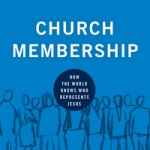 Church Membership: How the World Knows Who Represents Jesus. Why should you join a church? Becoming a member of a church is an important, and often neglected, part of the Christian life. Yet the trend these days is one of shunning the practice of organized religion and showing a distaste or fear of commitment, especially of institutions. Jonathan Leeman addresses these issues with a straightforward explanation of what church membership is and why it’s important. Giving the local church its proper due, Leeman has built a compelling case for committing to the local body.
Church Membership: How the World Knows Who Represents Jesus. Why should you join a church? Becoming a member of a church is an important, and often neglected, part of the Christian life. Yet the trend these days is one of shunning the practice of organized religion and showing a distaste or fear of commitment, especially of institutions. Jonathan Leeman addresses these issues with a straightforward explanation of what church membership is and why it’s important. Giving the local church its proper due, Leeman has built a compelling case for committing to the local body.
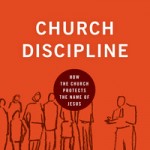 Church Discipline: How the Church Protects the Name of Jesus. Church discipline is essential to building a healthy church. So how exactly do we practice church discipline? Jonathan Leeman helps us face the endless variety of circumstances and sins for which no scriptural case study exists, sins that don’t show up on any list and need a biblical framework to be corrected appropriately in love. Here is a contemporary and concise how-to guide that provides a theological framework for understanding and implementing disciplinary measures in the local church, along with several examples of real-life situations and the corresponding responses.
Church Discipline: How the Church Protects the Name of Jesus. Church discipline is essential to building a healthy church. So how exactly do we practice church discipline? Jonathan Leeman helps us face the endless variety of circumstances and sins for which no scriptural case study exists, sins that don’t show up on any list and need a biblical framework to be corrected appropriately in love. Here is a contemporary and concise how-to guide that provides a theological framework for understanding and implementing disciplinary measures in the local church, along with several examples of real-life situations and the corresponding responses.
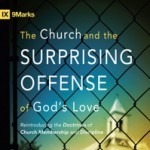 The Church and the Surprising Offense of God’s Love: Reintroducing the Doctrines of Church Membership and Discipline. When the world speaks of “love,” it often means unconditional acceptance. Many churches have adopted this mind-set in their practice of membership and discipline—if they have not done away with such structures entirely. “Yet God’s love and God’s gospel are different than what the world expects,” writes Jonathan Leeman. They’re centered in his character, which draws a clear boundary between what is holy and what is not. It’s this line that the local church should represent in its member practices, because the careful exercise of such authority “is God’s means for guarding the gospel, marking off a people, and thereby defining his love for the world.”
The Church and the Surprising Offense of God’s Love: Reintroducing the Doctrines of Church Membership and Discipline. When the world speaks of “love,” it often means unconditional acceptance. Many churches have adopted this mind-set in their practice of membership and discipline—if they have not done away with such structures entirely. “Yet God’s love and God’s gospel are different than what the world expects,” writes Jonathan Leeman. They’re centered in his character, which draws a clear boundary between what is holy and what is not. It’s this line that the local church should represent in its member practices, because the careful exercise of such authority “is God’s means for guarding the gospel, marking off a people, and thereby defining his love for the world.”
So how should churches receive and dismiss members? How should Christians view their submission to the church? Are there dangers in such submission? The Church and the Surprising Offense of God’s Love responds with biblical, theological, and practical guidance-from both corporate and individual perspectives. It’s a resource that will help pastors and their congregations upend worldly conceptions and recover a biblical understanding and practice of church authority.
A Week to Wield
As best I can tell, I usually spend about 25 hours a week in preparing a sermon. And this week is one in which I am not scheduled to preach.
I am thus left to consider how to best wield those 25 hours as a weapon for God’s glory. The normal battle plan on weeks like these is to deploy three regiments named Pray, Meet, and Read.
THE TEMPTER TALKS
I have discovered that Satan loves to scheme in two particular – and paradoxical – areas on the weeks when I don’t preach. First, he tempts unto laziness. “Take a break. Indulge yourself and have a rest,” he says. It is true that I must find ways to rest this week so my soul can be sustained over the long-haul. But the Worm’s deceitful distortion is to turn Sabbath-like rest into slothfulness.
Second, and here’s where the paradox comes in, he tempts unto labor. “Get everything done that you’ve placed on the back burner. Redo the church website. Finish the first draft of that book. Edit that research paper for seminary. Complete Bavinck’s fourth volume in Reformed Dogmatics. And, oh yeah, repair the fence while your at it.” There is a very real temptation to take all this extra time, pour my energy out in labor, only to find myself completely spent and disillusioned when the next week begins.
Sometimes the temptation flies from one area more than the other, but many weeks I find the snares to be dialectically tense; it seems like his fiery darts of laziness and labor come simultaneously.
So what is a pastor to do?
3 WAYS TO MAXIMIZE YOUR TIME OUT OF THE PULPIT
Pastors are stewards, and “it is required of stewards that they be found faithful.” Stewardship means faithfulness in the ministry of word, prayer, and care. Thus, on weeks out of the pulpit I want to labor diligently in those three areas of faithfulness. Hence the deployment of Pray, Meet, Read.
Pray.I try to use the extra hours on hand for extended prayer on particular issues. I delineate a few things pressing in life and ministry, carve out time for the prayer closest, and then try to take hold of God in those areas. For example, I aim aiming to “get through” to God on the future leaders of IDC, future location of IDC, and cultivation of godliness in my young boys.
Meet. In the days leading up to my “off” week I purpose to schedule 6-10 different meetings with people in our church. This is on top of the regularly recurring church meetings and discipleship gatherings. Usually, I meet with members I just want to connect with or members whom I need to speak with about something upcoming in the life of our church. I have meetings this week with almost all our small group leaders to talk about a small adjustment we are making to group life this fall.
Read. Finally, I select a couple of books that I want to plow through over the course of five days. These are books that either speak to a theological issue needing attention in my ministry, an upcoming sermon series, or are ones I trust will simply fuel joy and maturity in ministry. I have four books on tap this week:
- The Hidden Life of Prayer by David McIntyre.
- Behold Your God by Donald Macleod.
- All Round Ministry by Spurgeon.
- Crying Out for Vindication by David Jackson.
RESTING BY WORKING
As I fix my eyes on the week ahead, I expect the Serpent’s paradoxical temptations to laziness and labor to be constantly present. So I combat it with a paradox of my own: resting by working. Remember, this isn’t a sabbatical or vacation. Although I am not preaching, I am still working. And so I confront the snares named Laziness and Labor with “Pray, Meet, Read.” Not only do these three areas summarize faithful ministry, they also are the ways in which I ordinarily best rest. Communion with God and His people refuel my soul, and so I pour my energy into them to get His energy from them.
Maybe there are other ways that you can rest in the work. Find them. Hone them. Then wield them the next time you are scheduled to be out of the pulpit.
Prayer is the principal work of a minister and it is by this he must carry on the rest. – Thomas Hooker
Stand Firm on the Word of God
For days Odysseus, the ancient hero of Greek literature, and his men had sailed without sight of land as they journeyed home.
Distress and despair permeated the crew, until they heard distant, otherworldly, and yet beautiful sounds . . . the fabled, sweet, and magical Siren songs. Few people knew about these Sirens because few survived them; their lovely songs were in fact death dirges in disguise. The songs would steal the hearts of sailors and compel them to go on the Siren’s shore, only to find that stepping on their sand meant certain death at the hands of these less than noble women. Having been warned of the Sirens’ melodic scheme Odysseus quickly covers the crew’s ears with wax and instructs them to lash him hand and foot to the mast. And so it was the crew was able to stay the course while the Siren songs called for their souls.
In 2 Timothy 3 we find Paul exhorting his young protégé, one final time, to lash himself to the masthead of gospel. For it’s only there that he, and by extension we, can navigate through the treacherous waters of this dark world, a world filled with siren songs of sin and death.
A STUNNING ASSURANCE
In 3:1-9 Paul says that “the last days” – the period the NT consistently refers to as the time between Christ’s comings – will be a time characterized by nineteen different kinds of godlessness. Godlessness perpetuated by false teachers who, according to 3:8, “oppose the truth . . . [are corrupt] in mind, and disqualified regarding the faith.” But Timothy is to follow another course, the apostolic pattern of Paul. Notice 3:10-11, “You, however, have followed my teaching, my conduct, my aim in life, my faith, my patience, my love, my steadfastness, my persecutions and sufferings.” As it has gone for me, it must go for you. Look at the stunning promise of 3:12, “Indeed, all who desire to live a godly life in Christ Jesus will be persecuted.”
So here it is Timothy, here are my final parting words, “Don’t follow the false teaching of these men who proclaim a fixation on the world and a life free from pain and persecution. No, those men are duped by the devil (my contemporary translation of 3:13), and your faithfulness in ministry depends on not being duped.” Dear Christian, are you being devilishly duped about suffering and persecution in the Christian life? Radical Christ-exalting obedience and God-glorifying passion will always be persecuted. And we, like Timothy, must embrace it and endure it. The question then is, how? How will he embrace and endure the persecution that comes from life in Christ? The answer comes in 3:14-15.
STAND FIRM ON SCRIPTURE
Paul says in 3:14, “But as for you, continue . . .“ In 3:13 Paul has just said “evil people and imposters will go on from bad to worse,” they will advance and proceed in godlessness. But in 3:14 Paul tells Timothy to do the opposite, he is to “continue.” The word is better translated as “remain”, “stay”, or “abide.” Abide in what? Look at how the verse moves on, “Continue in what you have learned and have firmly believed, knowing from whom you learned it and how from childhood you have been acquainted with the sacred writings.” There’s the answer to the question. And the answer is two-fold: embrace and endure suffering by 1) continuing in what you have learned, and 2) knowing from whom you’ve learned it.
In the course of the pastorals, what Timothy has learned is regularly said to be “sound doctrine” or “the gospel”, which are both revealed in “the sacred writings” of Scripture. We know from the rest of the New Testament that who Timothy learned it from was his grandmother Lois and mother Eunice.
Are you not amazed at the glorious simplicity for pastoral perseverance? Paul’s final exhortation to Timothy, as he sits in a Roman prison cell, is, “Lash yourself to the gospel. And you’ll do that by staying close to the word of God and people who teach it faithfully.
We stand firm in the life of God by standing firm on the word of God.
This post is adapted from my recent sermon, “Read the Word,” on 2 Timothy 3:14-17.
I hope I may own in sincerity that my heart’s desire unto God, and the chief design of my life . . . are, that mortification and universal holiness may be promoted in my own and in the hearts and ways of others, to the glory of God, that so the Gospel of our Lord and Savior Jesus Christ may be adorned in all things. – John Owen
Precisely Packed
Meaning moves. Wisdom walks. And precision propels.
Which is why I love definitions. Sometimes you stumble across the definition of a particular term or action that opens the mind to an oh so powerful nuance. I’ve seen this happen in my own ministry when it comes to hearing a pithily packed definition of preaching.
3 LEGS OF UNDERSTANDING
Here are three definitions of preaching that have most shaped my practice:
- “To know truth as it should be known, to love it as it should be loved, and then to proclaim it in the right spirit, and in its proper proportions.” – Charles Spurgeon, An All Round Ministry, p. 8.
- An expositional sermon is a sermon in which “the point of the passage is the point of the sermon, applied to the life of the congregation.” – Mark Dever, quoted in Leeman, Reverberation, 114.
- “Expositional preaching is empowered preaching that rightly submits the shape and emphasis of the sermon to the shape and emphasis of the biblical text.” – David Helm, Expositional Preaching, 13.
I wonder how these might impact your preaching and sermon preparation. Meditate on them, squeeze out any nuance, and let them compel you to a faithful handling of God’s word.
3 Books Every Pastor Should Read: On Biblical Theology
Books are some of the best friends a pastor can have. How to know which friends to have is quite difficult, for as the inspired Preacher said, “Of making many books there is no end” (Ecclesiastes 12:12). Every so often I recommend three books for pastors on a given topic, hoping the suggestions might hone your book budget.
A popular renaissance in the field of biblical theology came at the turn of the century. Seminaries moved to offer PhDs in Biblical Theology and countless resources on the discipline have poured out of publishing houses. The saturation of books can make it difficult for a young pastor to know where to begin. Here are a few titles undoubtedly worth your time and money.
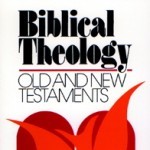 Biblical Theology by Geerhardus Vos. If Gabler is the grandfather of biblical theology as a theological enterprise, Vos surely is the Father of Biblical Theology. This volume is the fountainhead for the plethora of resources we’ve seen over the last few decades. Simply put, you have to reckon with the Dutchman who taught at Princeton Seminary in it’s twilight of grandeur. Vos is not easy by any stretch of the imagination, but the strain on your brain will be oh so worth it.
Biblical Theology by Geerhardus Vos. If Gabler is the grandfather of biblical theology as a theological enterprise, Vos surely is the Father of Biblical Theology. This volume is the fountainhead for the plethora of resources we’ve seen over the last few decades. Simply put, you have to reckon with the Dutchman who taught at Princeton Seminary in it’s twilight of grandeur. Vos is not easy by any stretch of the imagination, but the strain on your brain will be oh so worth it.
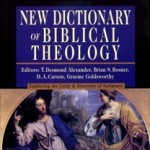 New Dictionary of Biblical Theology edited by Alexander, Rosner, Carson, and Goldsworthy. Yes, this is more an encyclopedic resource than page turner, but its insights are often stunning. As IVP says, “At the heart of this work is an A-to-Z encyclopedia of over 200 key biblical-theological themes such as atonement, creation, eschatology, Israel, Jesus Christ, the kingdom of God, redemption, suffering, wisdom and worship.” A BT benchmark that ought to be in every pastor’s study.
New Dictionary of Biblical Theology edited by Alexander, Rosner, Carson, and Goldsworthy. Yes, this is more an encyclopedic resource than page turner, but its insights are often stunning. As IVP says, “At the heart of this work is an A-to-Z encyclopedia of over 200 key biblical-theological themes such as atonement, creation, eschatology, Israel, Jesus Christ, the kingdom of God, redemption, suffering, wisdom and worship.” A BT benchmark that ought to be in every pastor’s study.
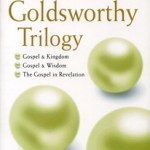 The Goldsworthy Trilogy by Graeme Goldsworthy. Paternoster did everyone a favor by bringing three excellent Goldsworthy books – “Gospel & Kingdom,” “Gospel & Wisdom,” and “The Gospel in Revelation” – into one volume. Few people have been able to better the Australian’s brilliant summation of Scripture’s storyline as “God’s people, in God’s place, under God’s rule.” The “Gospel & Kingdom” work is particularly helpful.
The Goldsworthy Trilogy by Graeme Goldsworthy. Paternoster did everyone a favor by bringing three excellent Goldsworthy books – “Gospel & Kingdom,” “Gospel & Wisdom,” and “The Gospel in Revelation” – into one volume. Few people have been able to better the Australian’s brilliant summation of Scripture’s storyline as “God’s people, in God’s place, under God’s rule.” The “Gospel & Kingdom” work is particularly helpful.
HONORABLE MENTIONS
Dominion and Dynasty: A Study in Old Testament Theology by Dempster. A magnificent evaluation of how OT passages find meaning and significance within the overall story of “dominion and dynasty.”
New Testament Biblical Theology: The Unfolding of the Old Testament in the New by Beale. Rightly called a “magnum opus,” this work will do for your understanding of the NT what Dempster does for the OT.
God’s Big Picture: Tracing the Storyline of the Bible by Roberts. An admitted simplification of Goldsworthy for the average church member, but it’s an excellent distillation. And a wonderful discipling resource!
Check out my past suggestions in the “3 Books Every Pastor Should Read” series here.
A Hymn to Sing on the Way to Heaven
Our churches needs psalms, hymns, and spiritual songs that speak to the full range of human experience. We need songs for seasons of lament, praise, distress, and hope.
One hymn of hope worth reclaiming today is Samuel Stennett’s “On Jordan’s Stormy Banks I Stand.”
Let me commend to you the Jars boys’ version for your church. May it help your people set their gaze toward their heavenly city.
On Jordan’s stormy banks I stand
And cast a wishful eye
To Canaan’s fair and happy land
Where my possessions lie
All o’er those wide extended plains
Shines one eternal day
There God, the Son forever reigns
And scatters night away
I am bound, I am bound, I am bound for the Promise Land
I am bound, I am bound, I am bound for the Promise Land
No chilling wind nor poisonous breath
Can reach that healthful shore
Where sickness, sorrow, pain and death
Are felt and feared no more
When shall I see that happy place
And be forever blessed
When shall I see my Father’s face
And in His bosom rest
Click here to find other hymns and arrangements worth your attention.




